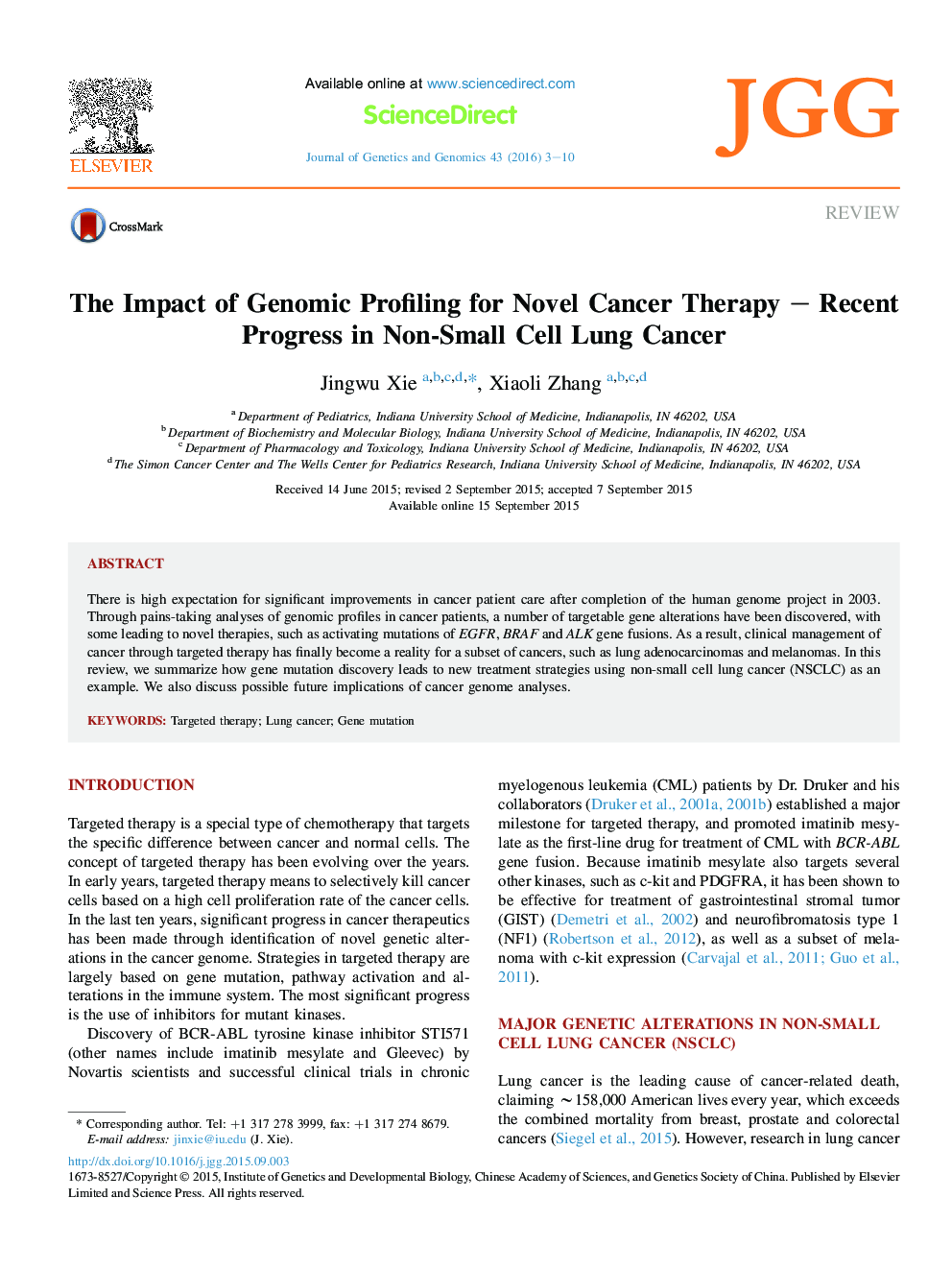| Article ID | Journal | Published Year | Pages | File Type |
|---|---|---|---|---|
| 2787318 | Journal of Genetics and Genomics | 2016 | 8 Pages |
There is high expectation for significant improvements in cancer patient care after completion of the human genome project in 2003. Through pains-taking analyses of genomic profiles in cancer patients, a number of targetable gene alterations have been discovered, with some leading to novel therapies, such as activating mutations of EGFR, BRAF and ALK gene fusions. As a result, clinical management of cancer through targeted therapy has finally become a reality for a subset of cancers, such as lung adenocarcinomas and melanomas. In this review, we summarize how gene mutation discovery leads to new treatment strategies using non-small cell lung cancer (NSCLC) as an example. We also discuss possible future implications of cancer genome analyses.
